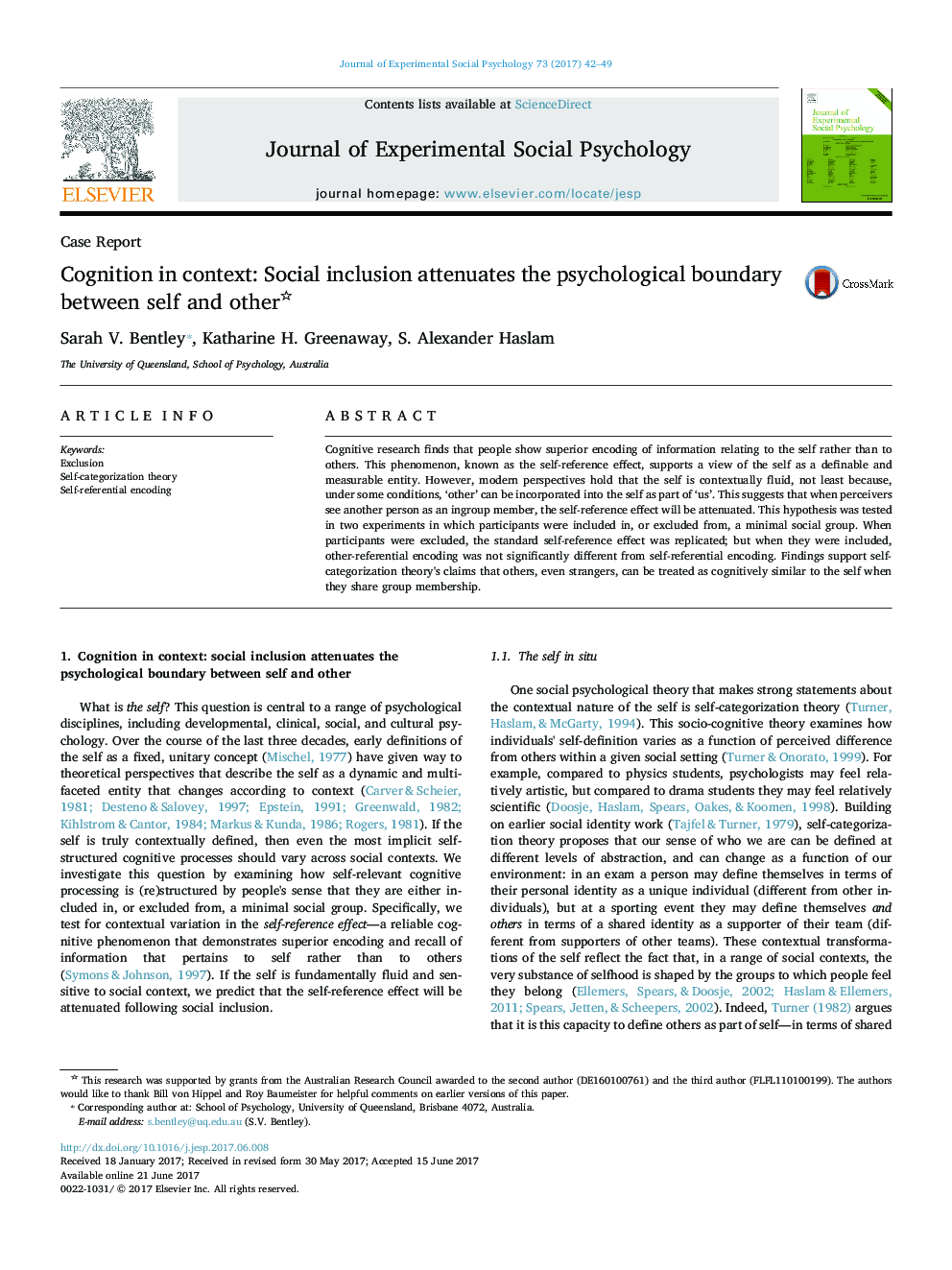| کد مقاله | کد نشریه | سال انتشار | مقاله انگلیسی | نسخه تمام متن |
|---|---|---|---|---|
| 5045688 | 1475850 | 2017 | 8 صفحه PDF | دانلود رایگان |
- Research demonstrating the contextually fluid nature of the self as measured using self- and other-referential encoding.
- Two conceptual replications observed the same effects using a particularly conservative test of the variable-self hypothesis.
- Concurrent self- and other-referential encoding was observed when people were exposed to a minimal social inclusion paradigm.
- Discrepant self- and other-referential encoding was observed when people were exposed to a minimal social exclusion paradigm.
Cognitive research finds that people show superior encoding of information relating to the self rather than to others. This phenomenon, known as the self-reference effect, supports a view of the self as a definable and measurable entity. However, modern perspectives hold that the self is contextually fluid, not least because, under some conditions, 'other' can be incorporated into the self as part of 'us'. This suggests that when perceivers see another person as an ingroup member, the self-reference effect will be attenuated. This hypothesis was tested in two experiments in which participants were included in, or excluded from, a minimal social group. When participants were excluded, the standard self-reference effect was replicated; but when they were included, other-referential encoding was not significantly different from self-referential encoding. Findings support self-categorization theory's claims that others, even strangers, can be treated as cognitively similar to the self when they share group membership.
Journal: Journal of Experimental Social Psychology - Volume 73, November 2017, Pages 42-49
